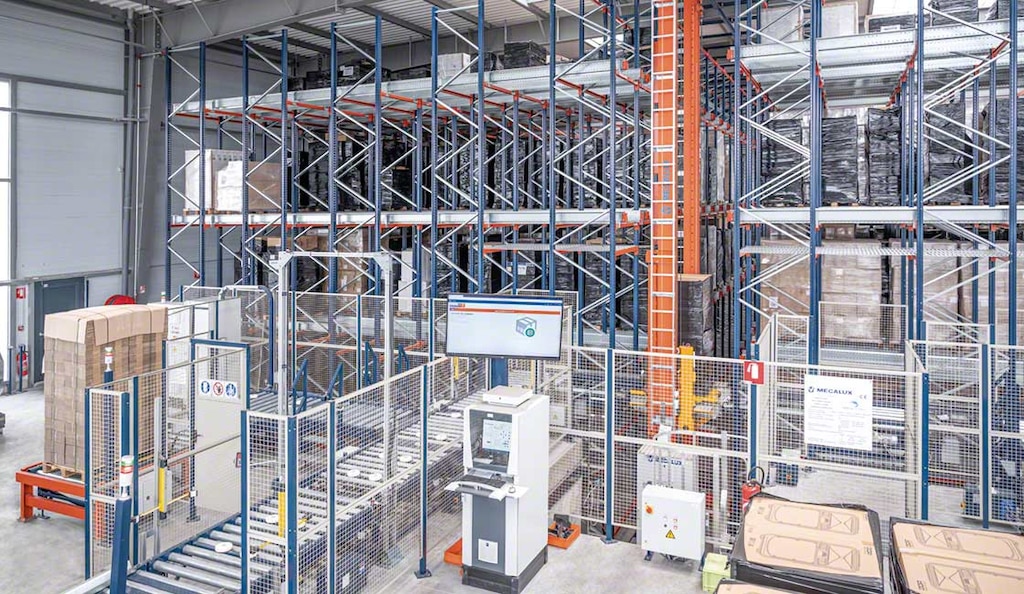
Logistics management: Exploring key types and strategies
Logistics management plays a key role in optimizing all supply chain processes, particularly for manufacturing and distribution companies. Understanding what it involves, where it applies, and the different types there are helps businesses handle their products more efficiently.
What is logistics management?
Logistics management encompasses the planning, control, and storage of goods from their point of origin to their final destination. It includes all activities aimed at meeting customer needs, from sourcing raw materials to their processing, transformation, packaging, and transportation. As a core part of the supply chain, logistics management coordinates all these areas to deliver the best possible service. It also involves streamlining information flows, managing transportation effectively, and implementing advanced technologies.
Advantages of good logistics management
High-quality logistics and supply chain management boosts business productivity by enhancing order shipment capabilities as well as product monitoring and traceability:
- Improved customer satisfaction. Effective transportation and logistics management ensures fast service, and positive user experiences help build a stronger brand reputation.
- Control over operating costs. Transparency and visibility into operating expenses support smoother logistics processes. Managing assets properly optimizes their use, improves business efficiency, and lowers costs.
- Greater cost-effectiveness. Having a clear view of operations does away with the need to overstock inventory and raises order fulfillment rates, driving profitability.
- Shipping efficiency. By optimizing distribution and minimizing resource waste, companies can meet quality standards, reduce errors, and guarantee reliable deliveries.
- Smart vehicle routing. Choosing the best delivery routes helps avoid traffic jams, enables driver and vehicle tracking, cuts down deadheading, and ensures customers receive their orders on time.

Types of logistics management and their applications
Each area of logistics management has its specific characteristics. Together, they coordinate to help businesses meet their goals, shorten delivery times, and boost customer satisfaction.
Warehouse logistics management
This involves organizing and managing products in warehousing facilities and distribution centers. Its goal is to store, safeguard, and preserve goods in the best possible condition for as long as they remain in the warehouse. It also includes internal transport, putaway, handling, and conditioning of inventory from receipt to dispatch.
Manufacturing logistics management
This focuses on coordinating the supply of raw materials so that production lines and processes run smoothly. Manufacturing logistics is crucial for the profitability of companies in this industry. It ensures that materials and products flow optimally throughout the production cycle.
Distribution logistics management
Distribution logistics covers all activities required to move products from production lines to customers. Efficient operations involve supply chain planning, inventory control, storage optimization, and selecting the most suitable transportation routes — especially important for international logistics management processes.
Last-mile logistics management
The last mile refers to the final leg of the delivery, when goods reach the customer’s specified destination. It’s a critical step in e-commerce logistics, as it significantly impacts costs and customer satisfaction.
Reverse logistics management
These processes oversee product returns from points of sale back to the manufacturer or distributor for exchange, repair, recycling, or disposal.

Tips for successful logistics management
There are many ways to coordinate and optimize supply chain processes to meet the goals of logistics as effectively as possible. Here are a few:
- Monitor what’s happening on the ground. Having real-time visibility into every stage of the process helps accelerate logistics operations and gives teams greater control.
- Automate operations. Automated storage and retrieval systems (AS/RS) save time and money by removing manual material handling from the equation and taking over repetitive tasks. They streamline logistics processes, adding speed, accuracy, and quality.
- Keep inventory close to customers. With consumers demanding quicker deliveries, setting up warehouses near end customers is a must.
- Provide last-mile options. Users also want to know where their orders are, who will deliver them, and when. Brands should offer flexible options, allowing customers to choose or change delivery dates, time windows, and drop-off locations.
Tech trends in logistics management
Intralogistics technology helps improve customer satisfaction by automating goods flow and providing real-time inventory control through warehouse management systems (WMSs).
Interlake Mecalux’s Easy WMS optimizes all processes and resources in logistics facilities, maximizing performance and cost-effectiveness. Designed for medium- and large-scale facilities, this software also features specialized modules to meet specific business needs. One example is Store Fulfillment, which synchronizes inventory and workflows between warehouses and physical store networks to ensure optimal goods management. If you’re looking to strengthen your supply chain, feel free to contact us — we’ll help you take your logistics operations to the next level.
